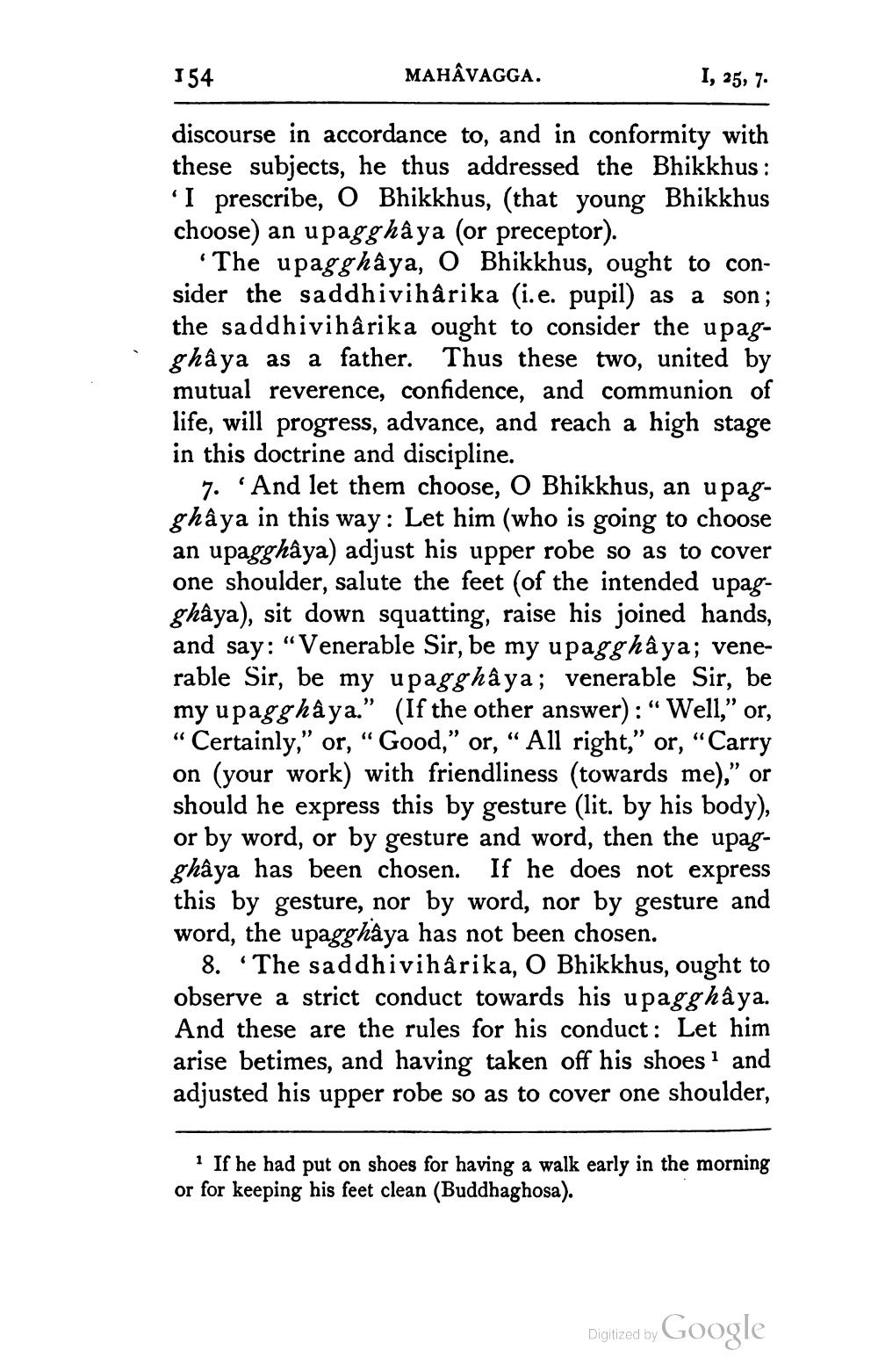________________
154
MAHÂVAGGA.
I, 25, 7.
discourse in accordance to, and in conformity with these subjects, he thus addressed the Bhikkhus: 'I prescribe, O Bhikkhus, (that young Bhikkhus choose) an upagghầya (or preceptor).
The upagghầya, O Bhikkhus, ought to consider the saddhiviharika (i.e. pupil) as a son; the saddhiviharika ought to consider the upagghầya as a father. Thus these two, united by mutual reverence, confidence, and communion of life, will progress, advance, and reach a high stage in this doctrine and discipline.
7. 'And let them choose, O Bhikkhus, an upagghầya in this way: Let him (who is going to choose an upagghầya) adjust his upper robe so as to cover one shoulder, salute the feet (of the intended upagghầya), sit down squatting, raise his joined hands, and say: "Venerable Sir, be my upagghầya; venerable Sir, be my upagghầya; venerable Sir, be my upagghầya.” (If the other answer): “Well," or, “Certainly,” or, “Good,” or, “ All right,” or, “Carry on (your work) with friendliness (towards me),” or should he express this by gesture (lit. by his body), or by word, or by gesture and word, then the upagghầya has been chosen. If he does not express this by gesture, nor by word, nor by gesture and word, the upagghầya has not been chosen.
8. “The saddhivihârika, O Bhikkhus, ought to observe a strict conduct towards his upagghầya. And these are the rules for his conduct: Let him arise betimes, and having taken off his shoes and adjusted his upper robe so as to cover one shoulder,
1 If he had put on shoes for having a walk early in the morning or for keeping his feet clean (Buddhaghosa).
Digitized by Google




